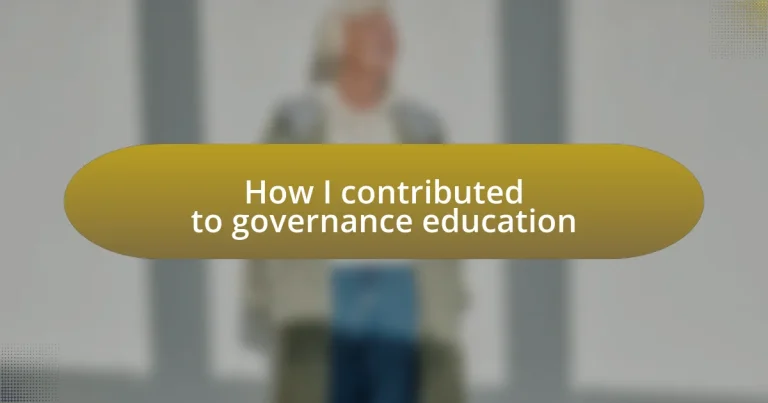Key takeaways:
- Participation in mentorship programs revealed the significance of sharing real-life governance experiences to inspire students.
- Collaboration with educational institutions facilitated workshops, internships, and curriculum development to link theory with practical application.
- Integrating experiential learning, such as simulation exercises and community stakeholder interactions, enhanced student understanding of governance complexities.
- Measuring impact through qualitative assessments, like reflective journaling, highlighted personal growth and civic engagement beyond traditional metrics.
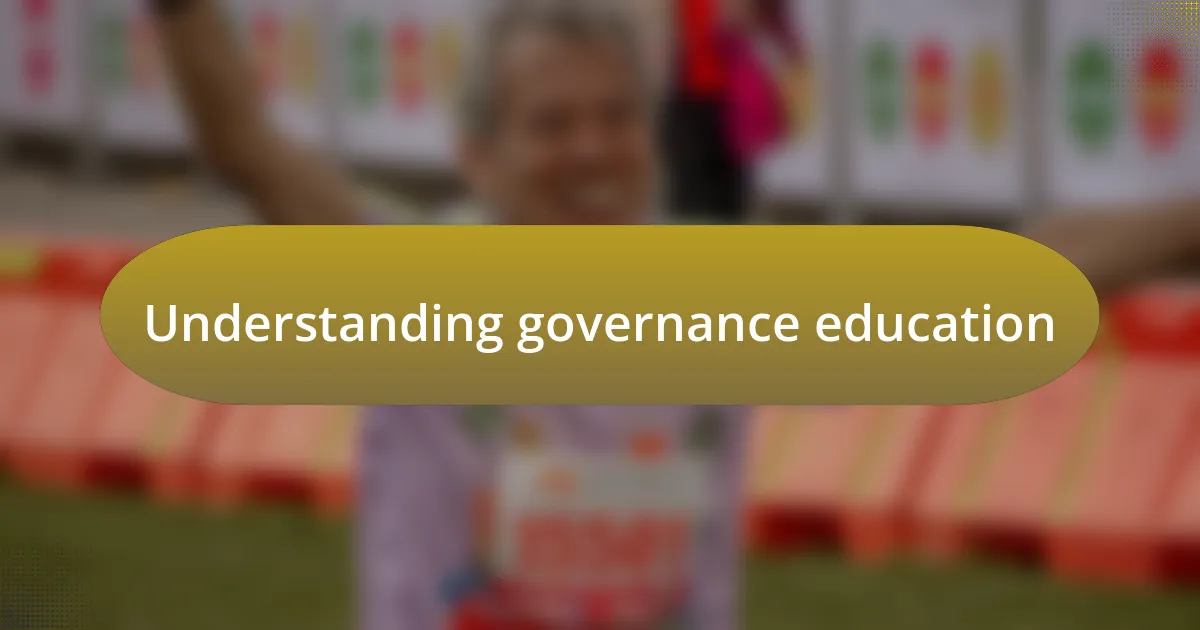
Understanding governance education
Governance education is a multifaceted approach to understanding how organizations and institutions operate effectively and ethically. I remember my first experience in a governance workshop; the passion of the speakers sparked in me a realization that effective governance impacts every aspect of society. It made me ponder: how can we ensure that future leaders grasp the complexities of governance?
At its core, governance education equips individuals with the knowledge and skills needed to navigate and influence decision-making processes. In my journey, I’ve encountered many aspiring leaders who struggle to grasp these nuances. This experience has shown me just how essential it is to make governance relatable and practical, breaking down concepts so they resonate with real-world issues.
Additionally, governance education encourages critical thinking and ethical reasoning, which are vital in today’s interconnected world. I had the opportunity to facilitate a discussion on ethical dilemmas faced in governance, and I witnessed firsthand how participants became deeply engaged. This made me question: how can we foster an environment where ethical considerations are not just an afterthought but a foundational element of governance education?
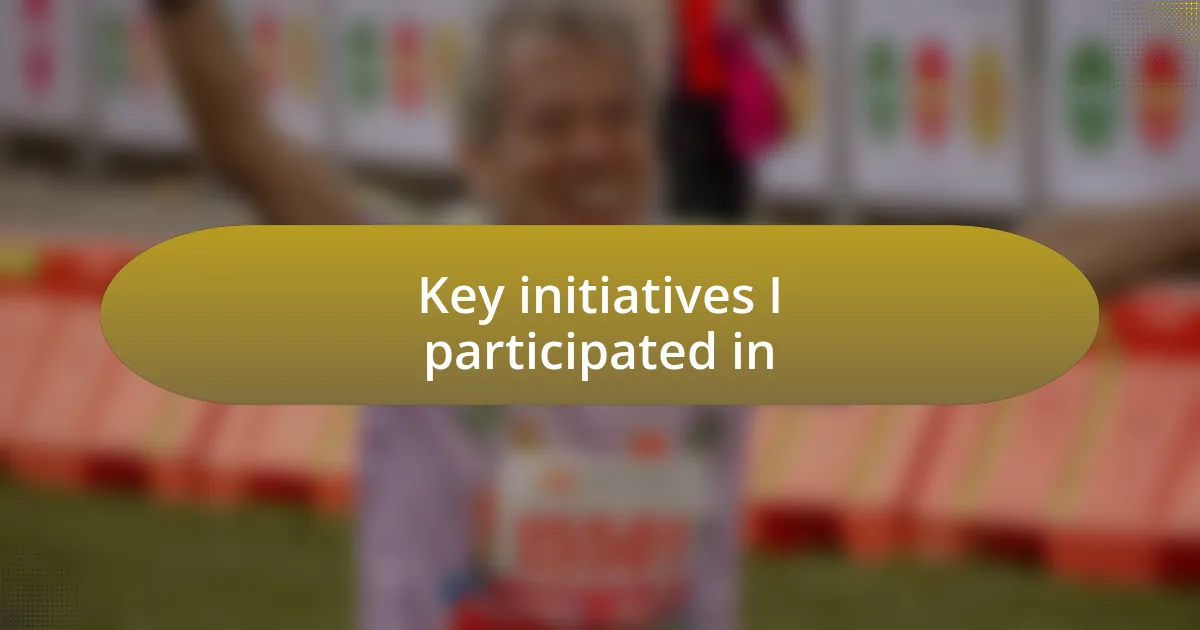
Key initiatives I participated in
In my journey within governance education, I actively participated in a mentorship program that paired experienced professionals with students. I vividly recall the first session, where I shared my challenges and victories in navigating governance roles. Seeing the students’ eyes light up with understanding made me realize how impactful sharing real-life experiences can be.
Additionally, I was involved in organizing local forums that brought community members together to discuss governance issues. One particular event stands out—when a heated debate arose about local policy changes. I facilitated the discussion, guiding participants to express their viewpoints while also listening to opposing perspectives. This experience highlighted how vital it is to create spaces where everyone’s voice is heard, fostering a richer understanding of our governance landscape.
Lastly, I collaborated on a project aimed at integrating governance education into high school curricula. I remember visiting various schools, witnessing students’ initial disinterest transform into curiosity as we introduced interactive activities. It reinforced my belief that when governance concepts are made relatable—using games, role-plays, and real case studies—it sparks a genuine interest in future leaders.
| Initiative | Description |
|---|---|
| Mentorship Program | Paired students with professionals to share experiences and insights. |
| Community Forums | Organized discussions on local governance topics to engage citizens. |
| High School Project | Introduced governance education through interactive activities in schools. |
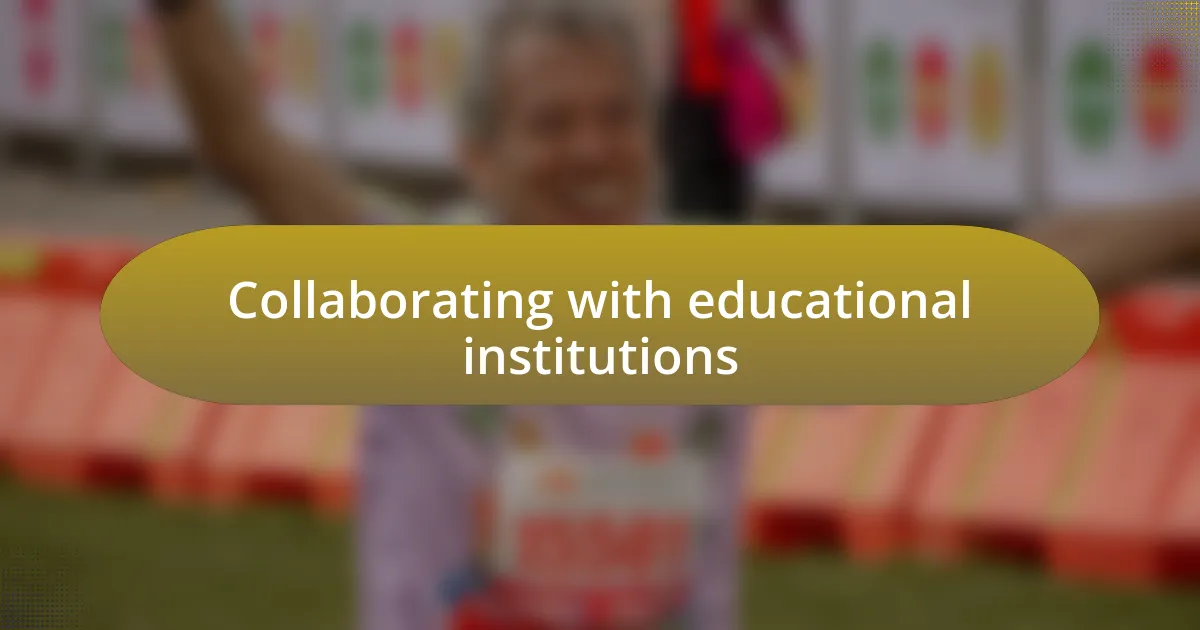
Collaborating with educational institutions
Collaborating with educational institutions has been one of the most rewarding experiences in my governance education journey. I partnered with several universities to co-develop workshops that aimed to bridge the gap between theoretical knowledge and practical application. One of the most impactful moments occurred when a student, during a role-playing exercise, expressed that they never thought governance could be so dynamic and relevant to their everyday lives. Seeing that realization light up their face was truly uplifting and validated our efforts.
In my view, collaboration with schools and universities opens up avenues for enriched learning experiences. Here are some specific strategies that I found effective in these partnerships:
- Workshops and Seminars: Facilitated engaging sessions that blend theoretical knowledge with real-world applications.
- Internship Programs: Developed opportunities for students to gain hands-on experience in governance roles.
- Curriculum Development: Collaborated to introduce contemporary governance topics into existing syllabi, making them more relevant to current societal issues.
These initiatives foster a deeper understanding of governance, proving that education is most powerful when it’s a shared journey.
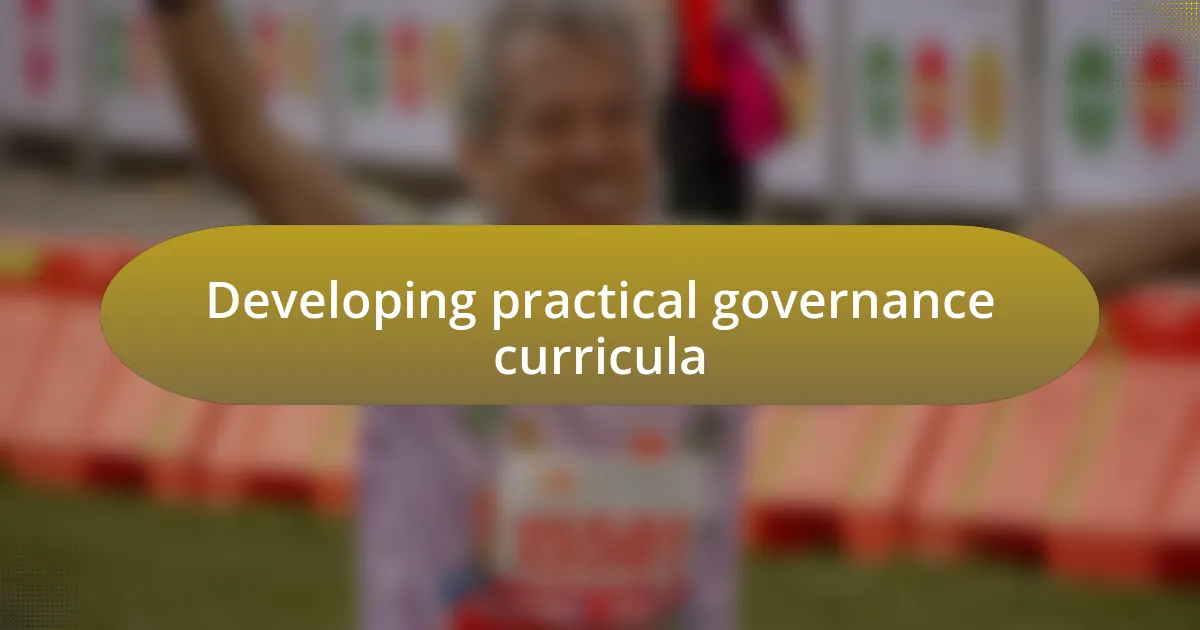
Developing practical governance curricula
Developing practical governance curricula requires a fine balance between theoretical frameworks and hands-on experiences. I remember one instance when I was reviewing a draft syllabus with educators. As we delved into the content, a lightbulb moment struck me—how essential it is to embed case studies from real governance challenges. It made me think: how can students grasp the complexities of governance without seeing its direct implications in their communities?
In my experience, integrating experiential learning elements into the curricula has been transformative. For instance, we designed simulation exercises where students could enact policy debates, which brought textbook theories to life. This wasn’t just about memorizing facts; it allowed students to witness the immediate impact of governance decisions, evoking emotions from excitement to frustration. It was fascinating to see how these activities sparked passionate discussions, underlining the relevance of governance in shaping society.
Moreover, I discovered that inviting community stakeholders to share their perspectives enhanced the learning experience. During one session, a local council member recounted their decision-making process during a crisis. Their candidness struck a chord with students, prompting them to reflect on the weight of responsibility in governance roles. It was moments like these that solidified my belief: practical governance education isn’t merely academic; it resonates deeply with civic engagement and responsibility.
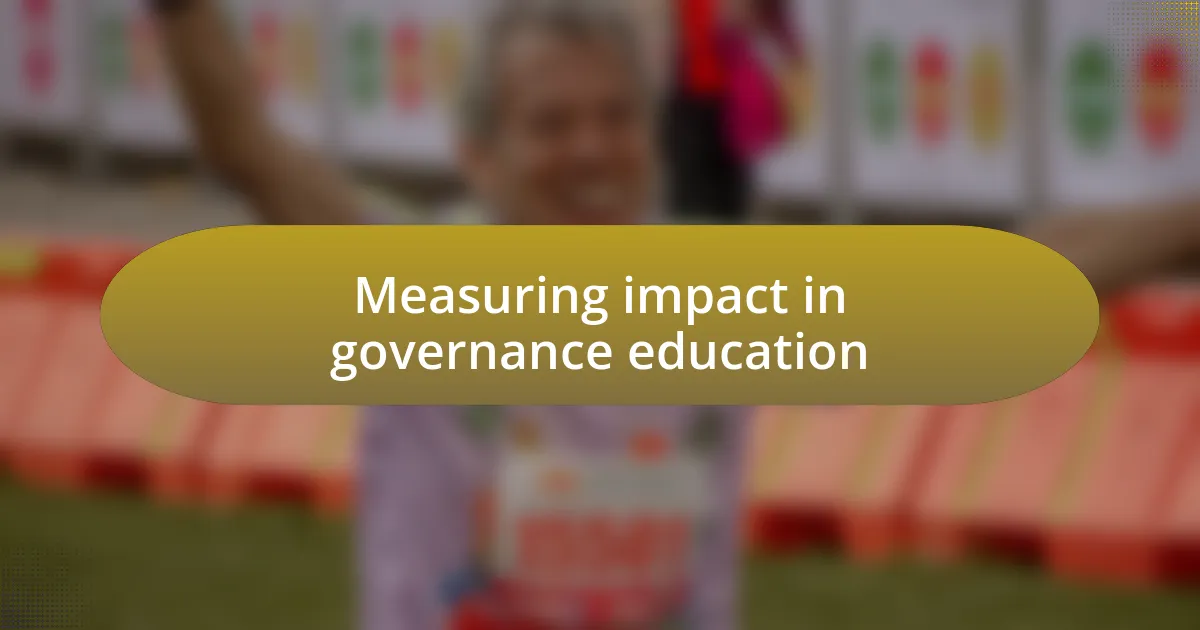
Measuring impact in governance education
Measuring impact in governance education can often feel like navigating a maze. From my experience, traditional metrics like test scores do not capture the full scope of student growth. I recall a moment when I personally assessed a cohort’s engagement during a community project; observing their evolution from hesitant participants to confident influencers highlighted the profound learning that occurs outside the classroom.
In one workshop, we introduced pre-and post-assessment surveys that gauged not only knowledge retention but also shifts in attitudes towards civic responsibility. The results were eye-opening. While many students initially expressed skepticism about their ability to effect change, by the end, their perspectives had transformed into a belief that they could be active agents in their communities. This kind of personal growth is a testament to the power of governance education.
Additionally, I found that engaging students in reflective journaling offered rich insights into their learning journeys. I remember reading one reflective entry that articulated a newfound passion for advocacy, which not only surprised me but also emphasized the emotional impact governance education can have. The ability to track such qualitative changes adds depth to our understanding of impact—are we merely teaching facts, or are we nurturing a sense of belonging and responsibility that they will carry into their futures?

